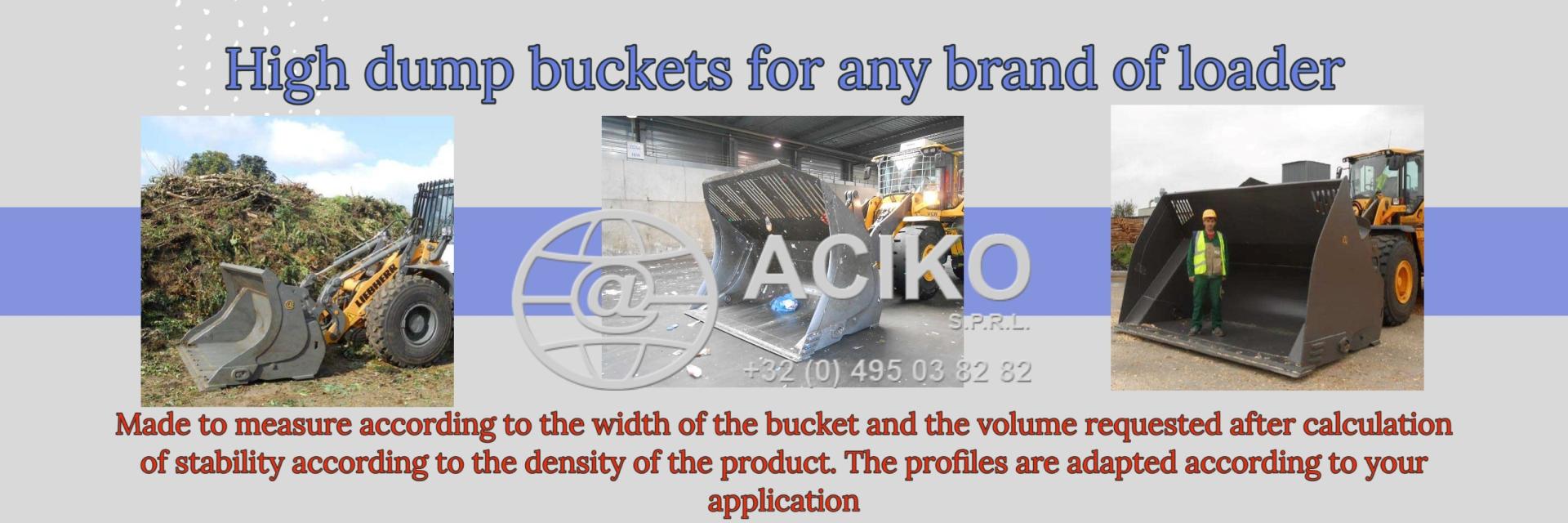Boğaziçi Beton commissions new CDE Wash Plant in Türkiye
 13/10/23-FR-English-NL-footer
13/10/23-FR-English-NL-footer
Boğaziçi Beton met en service une nouvelle usine de lavage CDE en Turquie
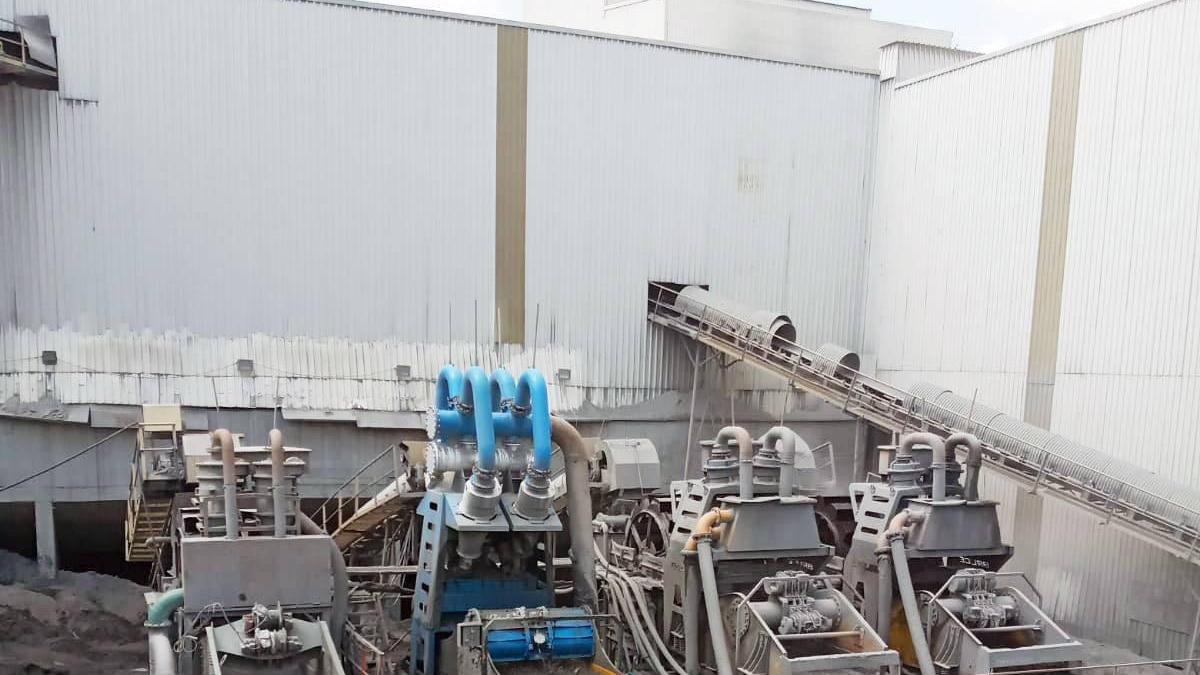
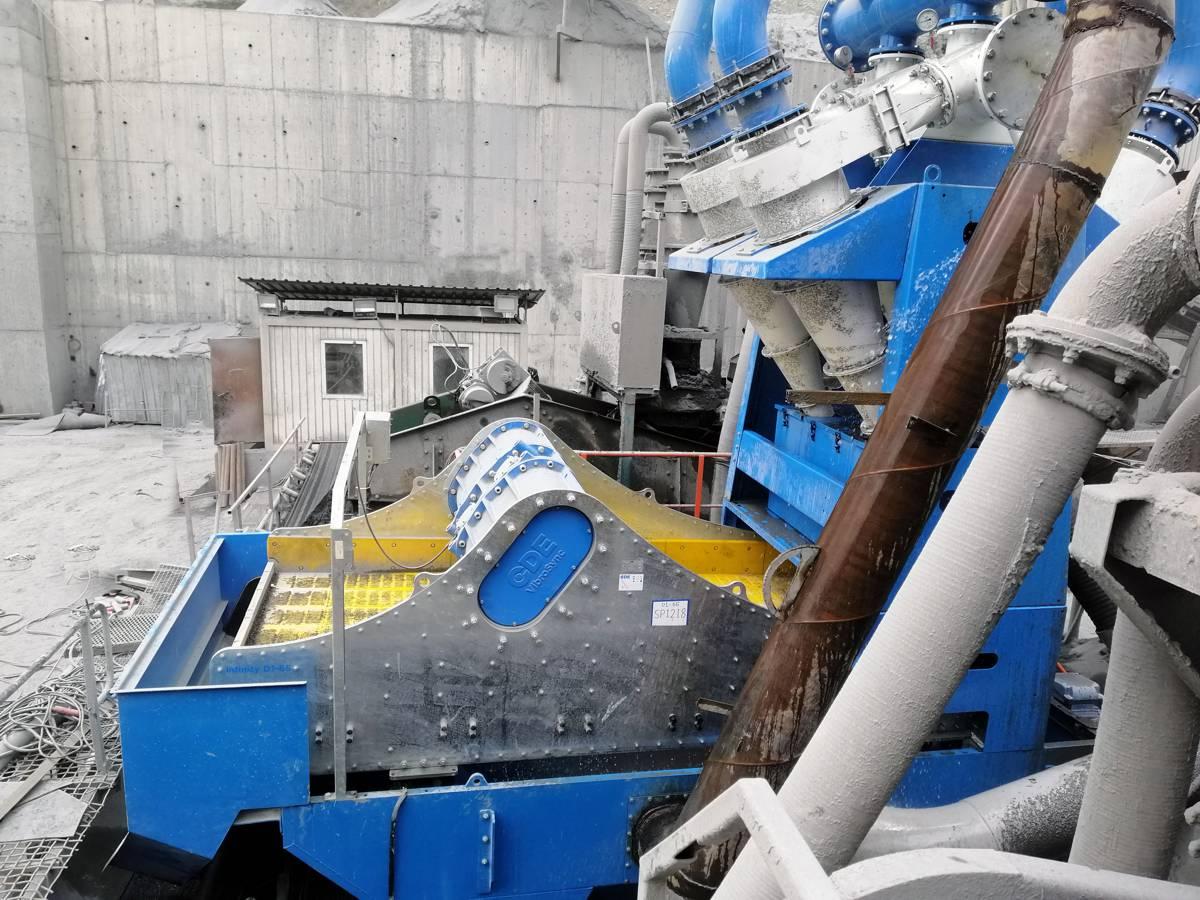
Image- CDE Group
Boğaziçi Beton, le plus grand fabricant de béton de Turquie, s'est associé aux experts en traitement humide CDE pour mettre en service une nouvelle usine de lavage de 220 tph afin d'éliminer les excès de fines de son sable de béton et de répondre aux normes de l'industrie.
Créée en 1997, Boğaziçi Beton possède 28 centrales à béton distinctes en Turquie, déversant 6 millions de m3/an. Au total, l'entreprise a coulé quelque 35 millions de m3 de béton qui ont été utilisés dans de grands projets de construction à Istanbul, notamment la nouvelle banque centrale, des projets de construction de métro, d'autoroutes et de viaducs et d'immeubles de grande hauteur dans le quartier financier.
L'entreprise, qui figure parmi les 500 plus grandes entreprises industrielles de Turquie au cours des 10 dernières années, a repris en 2015 une carrière de 50 acres dans la région de Kemerburgaz-Cendere pour commencer à traiter du sable concassé et des granulats pour sa propre production de béton.
L'année suivante, Boğaziçi Beton a augmenté la capacité de l'usine de concassage de sa carrière de Cendere à 2 000 tph, permettant à l'entreprise de traiter jusqu'à six millions de tonnes de matériaux concassés par an.
Résoudre le problème
En Turquie, le test d'absorption au bleu de méthylène est utilisé pour déterminer la qualité du matériau fin utilisé dans le béton et donc son application. Il mesure la teneur en argile et autres matériaux expansifs dans la fraction fine du sable et des granulats extraits, ce qui peut avoir un impact négatif sur la résistance et les performances du béton et augmenter la demande en ciment, en eau et en adjuvants.
À Kemerburgaz, où se trouve le site de Boğaziçi Beton, toutes les carrières contiennent du grès naturel qui présente un problème majeur d’absorption d’eau dans le sable concassé.
Avec environ 15 à 17 % de contenu de 0 à 63 microns après concassage, Boğaziçi Beton produisait des résultats de test au bleu de méthylène supérieurs aux limites acceptables, ce qui entraînait des coûts de production plus élevés en raison de la nécessité d'ajouter du ciment supplémentaire au mélange de béton.
Cherchant à résoudre ce problème, Boğaziçi Beton s'est engagé avec les experts en traitement humide CDE pour concevoir et mettre en service une usine permettant d'éliminer l'excès de fines dans son sable et de diminuer l'absorption d'eau dans le but d'obtenir un résultat de bleu de méthylène plus faible, conformément aux normes de l'industrie.
Doğan Özel, responsable du développement commercial chez CDE, explique comment CDE a rencontré Boğaziçi Beton sur son site pour commencer le processus de conception d'une solution répondant exactement à ses besoins : « Chez CDE, nous utilisons une approche unique de co-création afin de pouvoir répondre aux besoins individuels. besoins et exigences de chaque client. Nous avons été invités sur le site de Boğaziçi Beton pour évaluer les performances de l'usine existante et pour mieux comprendre comment notre technologie pionnière pourrait améliorer les performances.
M. Kıvanç Baş de Boğaziçi Beton explique comment la collaboration avec CDE leur a permis de garantir que la nouvelle usine atteindrait exactement ce qu'ils voulaient : « CDE a travaillé avec nous pour garantir que la nouvelle usine atteindrait le rendement souhaité. Nous les avons invités sur notre site pour observer et discuter de nos problématiques. Au cours de la visite, ils ont collecté des échantillons pour les tester, ce qui a confirmé que nos produits n’étaient pas conformes aux normes.
« À partir de là, nous avons travaillé ensemble pour créer une solution qui améliorerait la qualité globale de notre produit. Nous avons pu visiter d’autres sites utilisant des usines CDE pour nous faire une démonstration directe des avantages que la technologie CDE pourrait nous apporter.
Le problème central des valeurs élevées de bleu de méthylène de Boğaziçi Beton est l’intégration de roues à godets dans l’usine existante, qui augmentent l’absorption d’eau.
CDE a mis en service un EvoWash 251 de 220 tph pour contribuer à améliorer la qualité du produit tout en augmentant les rendements.
Système de lavage de sable compact et modulaire, l'EvoWash de CDE filtre et sépare les fractions de sable et de gravier les plus petites grâce à un tamis de déshydratation à haute fréquence intégré. La technologie de l'hydrocyclone offre un contrôle inégalé des points de coupe du limon et élimine la perte de fines de qualité.
La matière première est livrée sèche à l’usine, avant d’être suffisamment fluidisée. De là, il est pompé vers deux cyclones de 500 mm via une pompe à lisier intégrée pour éliminer les fines de moins 63 microns du produit.
En éliminant les fines, le produit a une teneur maximale de 3 % de 0 à 63 microns, ce qui modifie considérablement la mesure de la qualité du bleu de méthylène du matériau, l'alignant ainsi sur les normes de l'industrie.
L'EvoWash 251 a été parfaitement intégré pour traiter efficacement les fines. Le résultat obtenu contient un maximum de 2,5 % de contenu de 0 à 63 microns, soit une baisse significative par rapport au résultat du processus de concassage à sec.
Ainsi, les coûts opérationnels diminuent grâce à la teneur plus faible en bleu de méthylène, ce qui permet d'économiser sur l'ajout de ciment à leurs opérations de mélange prêt à l'emploi.
Non seulement la teneur en microns a diminué, mais la production globale a augmenté de 100 %. L'EvoWash permet à Boğaziçi Beton de traiter plus de 200 tph. En comparaison, lorsque les trois unités de lavage existantes sur le site sont au maximum, elles ne traitent que la moitié de la capacité de l’EvoWash.
M. Kıvanç Baş a déclaré : « Après avoir vu l'EvoWash en action et comment il a amélioré notre processus, nous prévoyons de remplacer tous nos modèles existants par des modèles EvoWash.
« Avant d'intégrer l'EvoWash, les unités de lavage constituaient un problème majeur car nous avons dû arrêter la production de l'usine de concassage de 2 000 tph pour permettre aux machines de lavage de suivre le rythme de production. Maintenant que l’EvoWash est opérationnel, nous pouvons éviter de tels problèmes.
« Nous coulons des bétons à haute résistance comme le C50 dans le nouveau complexe de la banque centrale de la République turque à Istanbul. Il est donc essentiel que nous utilisions du sable et des granulats de première qualité pour une gamme de production de concentrés aussi élevée. L’intégration de la technologie de CDE a joué un rôle essentiel en nous permettant de produire des produits de haute qualité à un coût opérationnel réduit.
Doğan déclare que les projets d'intégration d'autres usines témoignent de l'efficacité d'EvoWash : « Nous sommes ravis que notre technologie puisse avoir un impact aussi positif pour Boğaziçi Beton en augmentant les rendements et en améliorant la qualité du produit final. Nous attendons avec impatience la poursuite du partenariat avec Boğaziçi Beton pour améliorer encore davantage l'efficacité de leur usine.
NJC.© Info CDE Group
-----------------------------------------------------------------------------------------------------------------
 13/10/23-English
13/10/23-English
Boğaziçi Beton commissions new CDE Wash Plant in Türkiye
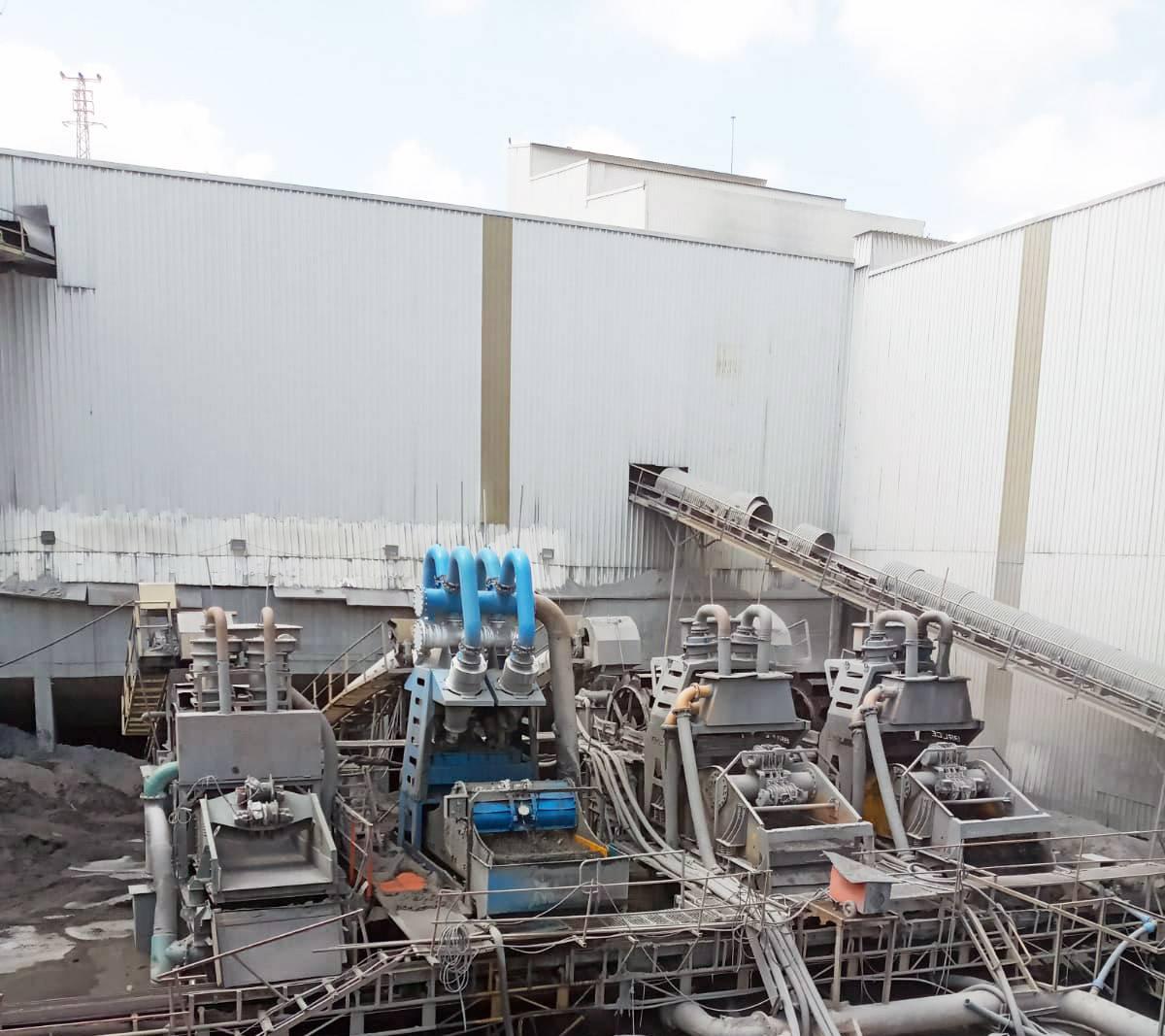
 Image- CDE Group
Image- CDE Group
Boğaziçi Beton, the largest concrete manufacturer in Türkiye, has partnered with wet processing experts CDE to commission a new 220tph wash plant to remove excess fines from its concrete sand and meet industry standards.
Established in 1997, Boğaziçi Beton has 28 separate concrete batching plants in Türkiye pouring 6 million m3/year. In total, the firm has poured some 35 million m3 of concrete which has been used in major construction projects in Istanbul, including the new central bank, metro construction projects, highways and viaducts and high-rise buildings in the financial district.
The firm, which has been listed among the top 500 industrial companies in Türkiye for the last 10 years, took over a 50-acre quarry in the Kemerburgaz-Cendere region in 2015 to begin processing crushed sand and aggregates for its own concrete production.
The following year, Boğaziçi Beton increased crushing plant capacity at its Cendere quarry to 2,000tph, enabling the firm to process up to six million tonnes of crushed material annually.
Addressing the problem
In Turkey, the methylene blue absorption test is used to determine the quality of the fine material used in concrete batch and therefore its application. It measures clay content and other expansive materials in the fines fraction of quarried sand and aggregates which can have an adverse impact on concrete strength, performance and increase the demand for cement, water and admixtures.
In Kemerburgaz, where Boğaziçi Beton’s site is located, all quarries have natural sandstone which has a major water absorption problem in crushed sand.
With approximately 15-17% of 0–63-micron content after crushing, Boğaziçi Beton was producing methylene blue test results above the acceptable limits which resulted in higher production costs due to the need to add additional cement to the concrete mix.
Seeking to address this, Boğaziçi Beton engaged with wet processing experts CDE to design and commission a plant to remove excess fines content in its sand and decrease water absorption with the aim of achieving a lower methylene blue result in line with industry standards.
Doğan Özel, business development manager for CDE, explains how CDE met Boğaziçi Beton at its site to begin the process of designing a solution to meet its exact needs: “At CDE we use a unique co-create approach so that we can meet the individual needs and requirements of each customer. We were invited to Boğaziçi Beton’s site to assess the performance of the existing plant, and to better understand how our pioneering technology could enhance performance.”
Mr. Kıvanç Baş from Boğaziçi Beton states how the collaboration with CDE allowed them to ensure the new plant would achieve exactly what they wanted it to: “CDE worked with us to ensure the new plant was going to achieve our desired output. We invited them to our site to observe and discuss our issues. During the visit, they collected samples for testing which confirmed that our products weren’t up to standard.
“From this, we worked together to create a solution which would improve the overall quality of our product. We were able to visit other sites using CDE plants to give us a first-hand demonstration of how CDE’s technology could benefit us.”
The issue central to Boğaziçi Beton’s high methylene blue values is the integration of bucket wheels in the existing plant, which increase water absorption.
CDE commissioned a 220tph EvoWash 251 to help improve the quality of the product whilst also increasing outputs.
A compact, modular sand washing system, CDE’s EvoWash screens and separates the smaller sand and gravel fractions through an integrated high-frequency dewatering screen, the hydrocyclone technology provides unrivalled control of silt cut points and eliminates the loss of quality fines.
The feed material is delivered to the plant dry, before being adequately fluidised. From here it is pumped to dual 500mm cyclones via an integrated slurry pump to remove minus 63-micron fines away from the product.
By removing the fines, the product has a maximum of 3% 0–63-micron content which dramatically changes the methylene blue quality measure of the material, aligning it with industry standard.
The EvoWash 251 was seamlessly integrated to efficiently process the fines material. The resulting output contains a maximum of 2.5% 0–63-micron content, down significantly when compared to the output of the dry crushing process.
Thus, in turn, decreases operational costs due to the lower methylene blue product, helping save on cement addition to their ready-mix operations.
Not only is micron content decreased, but overall outputs have increased by 100%. The EvoWash allows Boğaziçi Beton to process over 200tph. Comparatively, when the sites existing three washing units are at the maximum, they process only half of the EvoWash’s capacity.
Mr. Kıvanç Baş said: “After seeing the EvoWash in action, and how it has enhanced our process, we plan to replace all of our existing models with EvoWash models.
“Before we integrated the EvoWash, the washing units were a major pain point as we had to stop production of the 2,000tph crusher plant to allow the washing machines to keep up with production. Now that we have the EvoWash in operation, we can avoid any such issues.
“We pour high strength concretes like C50 to the new Turkish Republic Central bank complex in Istanbul, so it’s critical that we use top quality sand and aggregates for such high concentrate production range. The integration of CDE’s technology has been integral in allowing us to produce high quality product at a reduced operational cost.”
Doğan states that the plans to incorporate further plants are a testament to the EvoWash’s efficiency: “We’re delighted that our technology could have such a positive impact for Boğaziçi Beton by increasing outputs and improving the quality of the end-product. We look forward to a continued partnership with Boğaziçi Beton to enhance their plant efficiency even further.”
NJC.© Info CDE Group
-----------------------------------------------------------------------------------------------------------------
 13/10/23-NL
13/10/23-NL
Boğaziçi Beton neemt een nieuwe CDE-wasinstallatie in Türkiye in gebruik

 Image- CDE Group
Image- CDE Group
Boğaziçi Beton, de grootste betonfabrikant in Türkiye, heeft samengewerkt met deskundigen op het gebied van natte verwerking CDE om een nieuwe wasinstallatie met een capaciteit van 220 ton per uur in gebruik te nemen om overtollig fijn zand uit het betonzand te verwijderen en aan de industrienormen te voldoen.
Boğaziçi Beton, opgericht in 1997, heeft 28 afzonderlijke betoncentrales in Türkiye, die 6 miljoen m3/jaar storten. In totaal heeft het bedrijf zo'n 35 miljoen m3 beton gestort dat is gebruikt bij grote bouwprojecten in Istanbul, waaronder de nieuwe centrale bank, metrobouwprojecten, snelwegen en viaducten en hoogbouw in het financiële district.
Het bedrijf, dat de afgelopen tien jaar tot de top 500 industriële bedrijven in Türkiye behoort, heeft in 2015 een steengroeve van 50 hectare in de regio Kemerburgaz-Cendere overgenomen om te beginnen met de verwerking van gemalen zand en toeslagstoffen voor de eigen betonproductie.
Het jaar daarop verhoogde Boğaziçi Beton de capaciteit van de breekinstallatie in zijn steengroeve in Cendere tot 2.000 ton per uur, waardoor het bedrijf jaarlijks tot zes miljoen ton gebroken materiaal kon verwerken.
Het probleem aanpakken
In Turkije wordt de methyleenblauw-absorptietest gebruikt om de kwaliteit van het fijne materiaal dat in betonpartijen wordt gebruikt en daarmee de toepassing ervan te bepalen. Het meet het kleigehalte en andere expansieve materialen in de fijne fractie van gewonnen zand en toeslagstoffen, die een negatief effect kunnen hebben op de betonsterkte en -prestaties en de vraag naar cement, water en hulpstoffen kunnen vergroten.
In Kemerburgaz, waar de locatie van Boğaziçi Beton zich bevindt, bevatten alle steengroeven natuurlijk zandsteen, dat een groot probleem met de wateropname in gemalen zand veroorzaakt.
Met een inhoud van ongeveer 15-17% van 0-63 micron na het breken produceerde Boğaziçi Beton methyleenblauw-testresultaten boven de aanvaardbare limieten, wat resulteerde in hogere productiekosten vanwege de noodzaak om extra cement aan het betonmengsel toe te voegen.
Om dit aan te pakken, heeft Boğaziçi Beton samengewerkt met CDE-experts op het gebied van natte verwerking om een fabriek te ontwerpen en in gebruik te nemen om overtollig fijnstofgehalte in het zand te verwijderen en de waterabsorptie te verminderen met als doel een lager methyleenblauwresultaat te bereiken in overeenstemming met de industrienormen.
Doğan Özel, business development manager voor CDE, legt uit hoe CDE Boğaziçi Beton op zijn locatie ontmoette om het proces te starten van het ontwerpen van een oplossing die precies aan zijn behoeften zou voldoen: “Bij CDE gebruiken we een unieke co-create-aanpak, zodat we tegemoet kunnen komen aan de individuele behoeften van het individu. behoeften en eisen van elke klant. We werden uitgenodigd op de locatie van Boğaziçi Beton om de prestaties van de bestaande fabriek te beoordelen en om beter te begrijpen hoe onze baanbrekende technologie de prestaties zou kunnen verbeteren.”
De heer Kıvanç Baş van Boğaziçi Beton legt uit hoe de samenwerking met CDE hen in staat stelde ervoor te zorgen dat de nieuwe fabriek precies zou bereiken wat ze wilden: “CDE werkte met ons samen om ervoor te zorgen dat de nieuwe fabriek de gewenste output zou behalen. We nodigden hen uit op onze locatie om onze problemen te observeren en te bespreken. Tijdens het bezoek verzamelden ze monsters om te testen, wat bevestigde dat onze producten niet aan de normen voldeden.
“Van daaruit hebben we samengewerkt om een oplossing te creëren die de algehele kwaliteit van ons product zou verbeteren. We konden andere locaties bezoeken waar CDE-fabrieken werden gebruikt om ons uit de eerste hand te laten zien hoe de technologie van CDE ons ten goede zou kunnen komen.”
Het centrale punt bij de hoge methyleenblauwwaarden van Boğaziçi Beton is de integratie van emmerwielen in de bestaande installatie, die de wateropname verhogen.
CDE heeft een EvoWash 251 met een capaciteit van 220 ton per uur in gebruik genomen om de kwaliteit van het product te helpen verbeteren en tegelijkertijd de output te verhogen.
Een compact, modulair zandwassysteem, CDE's EvoWash zeven en scheidt de kleinere zand- en grindfracties via een geïntegreerde hoogfrequente ontwateringszeef. De hydrocycloontechnologie biedt ongeëvenaarde controle over slibafkappunten en elimineert het verlies aan kwaliteitsboetes.
Het voedermiddel wordt droog aangeleverd aan de plant, waarna het voldoende wordt gefluïdiseerd. Vanaf hier wordt het via een geïntegreerde slurrypomp naar dubbele cyclonen van 500 mm gepompt om fijne deeltjes van minus 63 micron uit het product te verwijderen.
Door het verwijderen van de fijne deeltjes heeft het product een maximaal gehalte van 3% van 0-63 micron, wat de methyleenblauwkwaliteit van het materiaal dramatisch verandert, waardoor het in lijn komt met de industriestandaard.
De EvoWash 251 werd naadloos geïntegreerd om het fijne materiaal efficiënt te verwerken. De resulterende output bevat maximaal 2,5% 0-63 micron-inhoud, aanzienlijk lager in vergelijking met de output van het droge breekproces.
Dit verlaagt op zijn beurt de operationele kosten dankzij het lagere methyleenblauw-product, waardoor wordt bespaard op de toevoeging van cement aan hun kant-en-klare-mixactiviteiten.
Niet alleen is het microngehalte afgenomen, maar de algehele output is met 100% toegenomen. Dankzij de EvoWash kan Boğaziçi Beton meer dan 200 ton per uur verwerken. Ter vergelijking: wanneer de locaties met drie wasunits het maximum bereiken, verwerken ze slechts de helft van de capaciteit van de EvoWash.
De heer Kıvanç Baş zei: “Nadat we de EvoWash in actie hebben gezien en hoe deze ons proces heeft verbeterd, zijn we van plan al onze bestaande modellen te vervangen door EvoWash-modellen.
“Voordat we de EvoWash integreerden, waren de wasunits een groot pijnpunt, omdat we de productie van de brekerinstallatie met een capaciteit van 2.000 ton per uur moesten stopzetten, zodat de wasmachines de productie konden bijhouden. Nu we de EvoWash in gebruik hebben, kunnen we dergelijke problemen voorkomen.
“We gieten beton met een hoge sterkte, zoals C50, in het nieuwe centrale bankcomplex van de Turkse Republiek in Istanbul, dus het is van cruciaal belang dat we zand en toeslagstoffen van topkwaliteit gebruiken voor een dergelijk hoog concentraatproductiebereik. De integratie van de technologie van CDE heeft ons in staat gesteld producten van hoge kwaliteit te produceren tegen lagere operationele kosten.”
Doğan stelt dat de plannen om nog meer fabrieken op te nemen een bewijs zijn van de efficiëntie van EvoWash: “We zijn blij dat onze technologie zo’n positieve impact kan hebben op Boğaziçi Beton door de output te vergroten en de kwaliteit van het eindproduct te verbeteren. We kijken uit naar een voortgezette samenwerking met Boğaziçi Beton om de efficiëntie van hun fabriek nog verder te verbeteren.”
NJC.© Info CDE Group
-----------------------------------------------------------------------------------------------------------------
Date de dernière mise à jour : 12/10/2023

